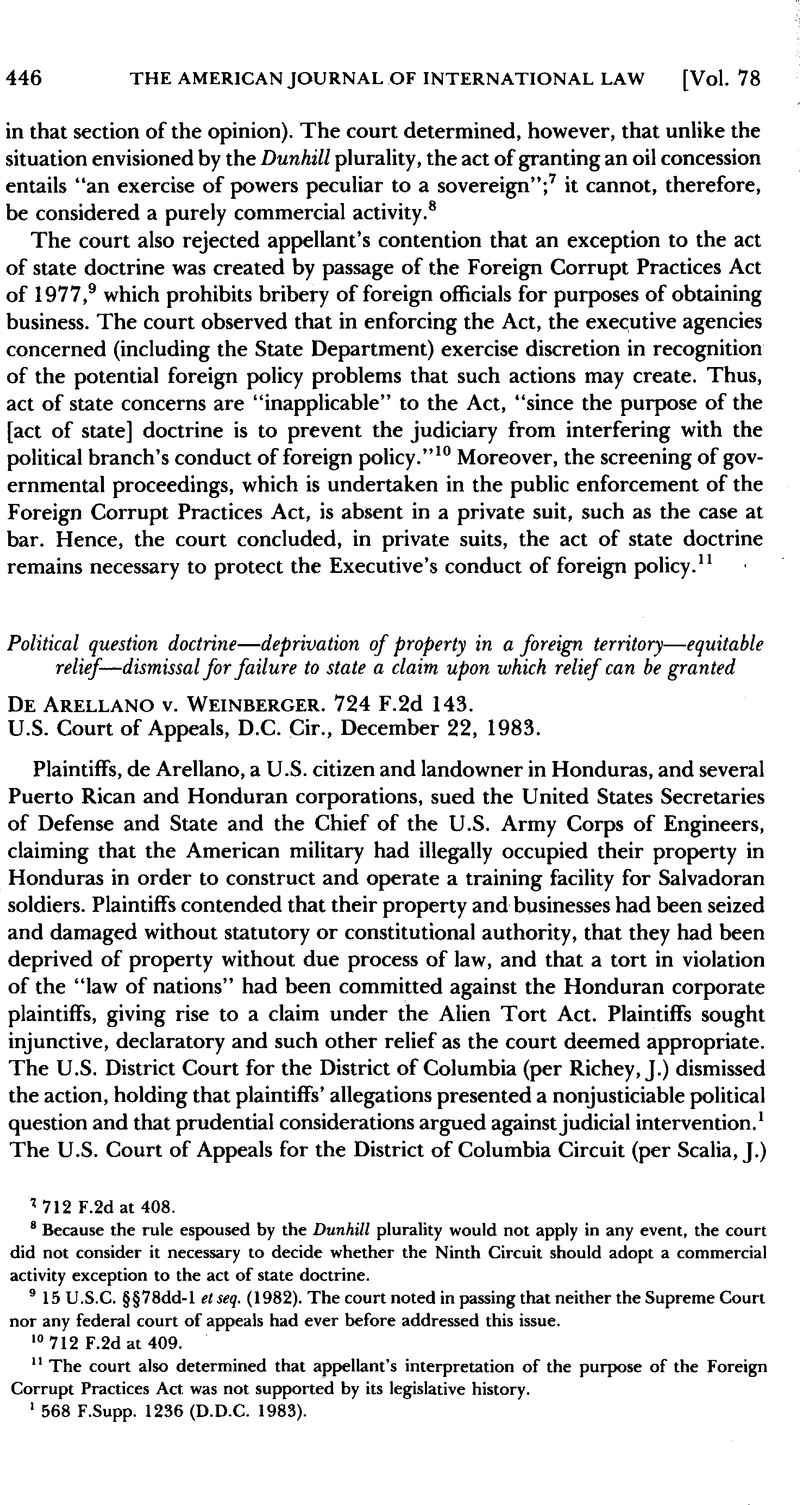No CrossRef data available.
Published online by Cambridge University Press: 27 February 2017

1 568 F. Supp. 1236 (D.D.C. 1983).
2 369 U.S. 186 (1962).
3 724 F.2d 143, 146–47.
4 The court noted that the executive branch had not yet asserted any privilege; moreover, there would be time to dismiss the action if subsequent discovery threatened disclosure of confidential information. Id. at 147.
5 Id.
6 The court stated that disbanding a training camp for troops of a friendly country engaged in defensive combat would intrude on the conduct of foreign affairs and could cause unknown or unintended harm; therefore, “an overwhelming showing of need [for the injunction] must be made.” Id. at 148.
7 Id. at 149 (quoting Steele v. Bulova Watch Co., 344 U.S. 280, 289 (1952), and relying upon Porto Rico Tel. Co. v. Puerto Rico Communications Auth., 189 F.2d 39, 41–42 (1st Cir.), cert, denied, 342 U.S. 830 (1951)).
8 The court emphasized that plaintiffs could pursue a claim for monetary damages based on a Fifth Amendment taking without compensation. Depending on the amount of the claim, the action could be brought in either district court or before the Claims Court under the Tucker Act (28 U.S.C. §1491 (1982)).
9 724 F.2d at 163 n.31. Judge Wilkey, dissenting, questioned whether plaintiffs could pursue a claim under the Tucker Act since that statute does not provide monetary relief for actions taken without some type of congressional authorization. Id. at 164–66 (Wilkey, J., dissenting). Judge Wilkey also doubted whether monetary damages were adequate given the psychological and physical threat of injury to plaintiff de Arellano and his family. Id. at 166–68.
10 Id. at 146–47. In dictum, the court also suggested that the Honduran corporate plaintiffs may not have any rights under the U.S. Constitution with regard to activities in Honduras. Id. at 150–51. Judge Wilkey, dissenting, took issue with this view. Id. at 157–58 n.9 (Wilkey, J., dissenting).
11 Id. at 156.
12 Id. at 159 (Wilkey, J., dissenting). Thus, for example, Wilkey observed that only “[f]act-finding in favor of defendants permits the conclusion that relocating the camp would impinge upon Honduran actions, since plaintiffs averred that Honduran officials actually want the U.S. to move the training center.” Id. at 159–60.
13 On Feb. 23, 1984, the court vacated the decision and scheduled the case for rehearing en banc.